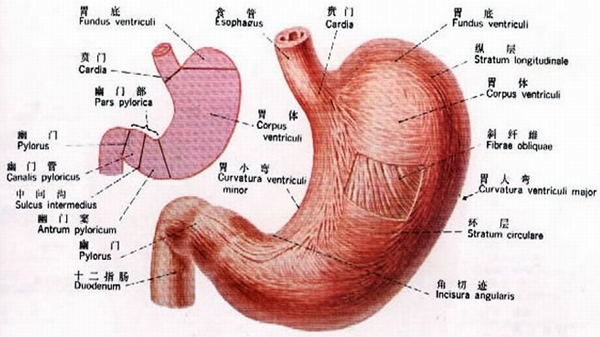The stomach is connected with the esophagus in the upper and the small intestine in the lower, usually divided into three parts, namely shangwan (the upper part of the stomach and cardia), zhongwan (the middle part of the stomach) and xiawan (the lower part of the stomach and pylorus).
The physiological function of the stomach is to receive and digest food. The chyme transformed in the stomach is then transmitted to the small intestine. Since the stomach is big and can contain large amount of food, it is called "the sea of food and water" in Huangdi Neijing.

The stomach depends on the propelling of stomach-qi to perform its function. Stomach-qi is the basic motive power for transmitting food and water in the stomach downwards. The canal connecting the stomach and the small intestine must be kept unobstructed so that the chime can smoothly be transmitted from the stomach to the small intestine.
That is why the physiological function of the stomach is often described as "the stomach functions to descend" and "the unobstructed condition is prerequisite to the normal function of the stomach" in TCM, usually abbreviated as "the stomach governing descent". Dysfunction of the stomach will lead to distending stomachache and poor appetite due to disharmony of stomach-qi, or belching, vomiting, nausea and hiccup due to failure of stomach-qi to descend or upward flow of stomach-qi.
Since the food received and digested by the stomach is the main substance for producing qi and blood, the stomach is called "the sea of food".







